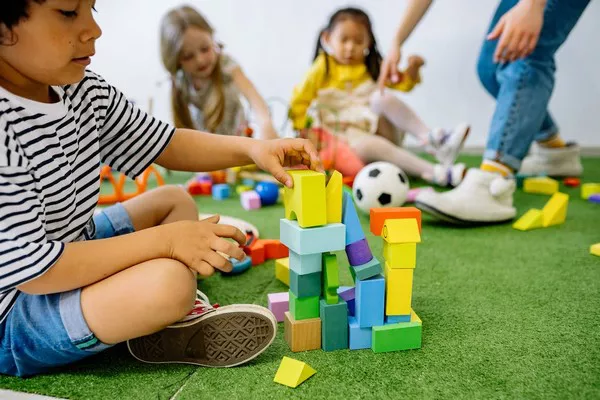Good parenting is a dynamic and ever-evolving journey that requires a combination of skills, qualities, and strategies to navigate successfully. In this comprehensive guide, we will explore various aspects of good parenting, from essential skills to practical tips for raising happy, well-adjusted children. Whether you’re a new parent or looking to enhance your parenting skills, this article offers valuable insights to help you on your parenting journey.
Effective Communication
a. Active Listening: One of the foundational good parenting skills is active listening. Pay close attention when your child talks, ask follow-up questions, and validate their feelings. This fosters open and honest communication.
b. Encouraging Expression: Create an environment where your child feels comfortable expressing their thoughts and emotions. Encourage them to share their concerns and experiences with you.
c. Empathy and Understanding: Practice empathy by trying to understand your child’s perspective. Show compassion and support, even when you disagree with them.
d. Conflict Resolution: Teach your child healthy conflict resolution techniques, such as compromise and active problem-solving. Model these skills in your interactions with them and others.
Setting Clear Expectations and Boundaries
a. Consistent Rules: Establish consistent rules and boundaries within your household. Children thrive when they know what is expected of them and the consequences of their actions.
b. Age-Appropriate Expectations: Tailor your expectations to your child’s age and developmental stage. Be realistic about what they can achieve at each stage of their development.
c. Explain the “Why”: When setting boundaries, explain the reasons behind them. This helps children understand the purpose and importance of rules.
d. Positive Discipline: Implement positive discipline techniques that focus on teaching, not punishing. Encourage your child to learn from their mistakes and make better choices.
Positive Reinforcement and Encouragement
a. Praise and Recognition: Acknowledge and praise your child’s efforts and achievements, no matter how small. Positive reinforcement motivates them to continue their good behavior.
b. Reward Systems: Create reward systems that encourage positive behavior. Offer incentives or privileges for meeting specific goals or behaving well.
c. Celebrate Progress: Celebrate your child’s progress and effort, emphasizing the importance of trying their best rather than just achieving perfect results.
d. Constructive Feedback: When offering feedback, be constructive and focus on the behavior, not the child. Encourage them to learn from their mistakes.
Demonstrating Love and Affection
a. Physical Touch: Express love through physical affection, such as hugs, kisses, and cuddles. Physical touch fosters a strong emotional connection.
b. Quality Time: Spend quality time with your child regularly. Engage in activities they enjoy and create cherished memories together.
c. Words of Affirmation: Use kind and encouraging words to express your love and appreciation. Positive verbal affirmations reinforce their self-worth.
d. Be Present: Be fully present when interacting with your child. Minimize distractions and give them your undivided attention.
Leading by Example
a. Model Behavior: Children learn by observing their parents. Model the values, behaviors, and attitudes you want them to adopt.
b. Demonstrate Empathy: Show empathy and compassion towards others in your daily life. Your child will emulate these qualities.
c. Problem-Solving Skills: Demonstrate effective problem-solving skills when facing challenges. This teaches them resilience and adaptability.
d. Healthy Relationships: If applicable, maintain healthy relationships with your spouse or partner. Your relationship serves as a model for their future interactions.
Supporting Independence and Autonomy
a. Encourage Decision-Making: Allow your child to make age-appropriate decisions. Encourage them to take responsibility for their choices.
b. Foster Problem-Solving: Instead of solving every problem for your child, guide them in finding solutions independently. This builds critical thinking skills.
c. Provide Opportunities: Offer opportunities for your child to explore their interests and passions. Support their hobbies and pursuits.
d. Balancing Freedom and Safety: Strike a balance between granting independence and ensuring their safety. Give them room to grow while offering guidance.
Conclusion
In conclusion, good parenting skills encompass effective communication, setting clear expectations, positive reinforcement, demonstrating love and affection, leading by example, and supporting independence. These qualities and strategies are essential for nurturing your child’s emotional and social development. Parenting is an ongoing journey of learning and growth, and it’s normal to make mistakes along the way. By cultivating these skills and qualities, you can create a loving and supportive environment where your child can thrive and develop into a well-rounded individual.


